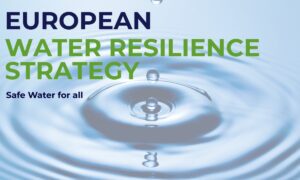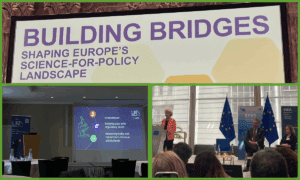The report praised the high impact of Framework Programme 8, named Horizon 2020 – which ran from 2014 to 2020, preceding the current Framework Programme 9, Horizon Europe. It mentions Europe’s scientific output and research capacity increase, as well as its delivery of tangible solutions in many areas, such as tackling the challenges of climate change, making fisheries more sustainable and achievements in healthcare. In addition, the implementation of measures to achieve open science was also considered a success. However, the report concluded that balance between eastern and western Europe, as well as gender equality metrics leave room to improve. Furthermore, the report also calls for simplification to increase visibility and accessibility.
The key issue however, also highlighted by European Commissioner for research and innovation Iliana Ivanova at the meeting of the Parliament’s Committee on Industry, Research and Energy before the release off the evaluation report, was the lack of funding. A shortage of 159 billion EUR was identified – causing 74% of the projects assessed as high quality to remain unfunded.
However, the current crises faced by the EU do not bode well for the current Framework Programme. On 1 February, heads of European States agreed upon the financial framework until 2027 – after the issues caused by the veto of Hungarian Prime Minister Viktor Orban in December 2023 were resolved. This new budget resulted in a cut of 2.1 Billion EUR for Horizon – however, defence research and development received 1.5 Billion EUR extra funding.
Further down the line with regards to EU research policy outlook, another report from an European Commission expert group, released on 26 January, criticised the missions within the current framework, signing that the following Framework Programme 10, scheduled to launch in 2028, may leave missions behind, or implement them differently. This is in line with information obtained by Science/Business, according to which a member states calls for the dropping of missions from FP10, alongside other structural changes. In the meantime, the European Research Council released a statement calling for significantly increasing the budget for FP10, as well as implementing measures ensuring research integrity.



